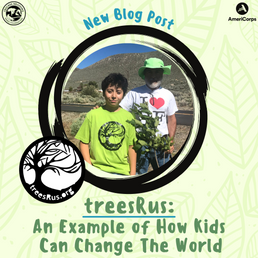Tips and Tricks for Spring Gardening in Nevada
- Julie Johnson, Student Stewards Program Outreach Coordinator VISTA
- Mar 21, 2022
- 2 min read
Get your garden off to a good start this spring! Gardening in Nevada can sometimes be a rollercoaster. You never know what Nevada’s weather might bring, hot sunny days mixed with surprise snowstorms in April. This is your guide to choosing the right plants for a healthy garden in Northern Nevada.
According to the University of Nevada, Reno College of Agriculture, Biotechnology, and Natural Resources, “In northern Nevada, we can grow an abundance of vegetables. We have three seasons during which we can grow food: early spring, summer and early fall. St. Patrick’s Day (March 17) is the traditional start to our cool‐season gardens.”
Cool season starter plants:
English peas
snow peas,
sugar snap peas
sweet peas
spinach

Wait another month and you can direct‐seed most other cool‐season crops such as:
Lettuce
Swiss chard
Beets
Carrots

After the last frost in May to early June, you can plant warm‐season transplants (small plants started indoors from seed by you or a nursery) such as”
Tomatoes
Eggplant
Peppers
Watermelon
Squash

You can plant a second season of cool‐season vegetables starting in August. Many of these plants can be harvested well into autumn and will overwinter if protected.
Choose a site for your garden that gets full sun for at least six to eight hours per day. Most often the best place for a vegetable garden is the south‐facing side of your property that features protection from the wind, which can rob plants of moisture. A fence, row of trees or bushes will help! If you do not have yard space you can grow vegetables in containers and move them to where the sun is.
Other tips!
Tomato plants do the best in a raised bed or a pot with morning sun and afternoon shade.
Something to note is that plants that have fruit on them are often not the best choice for your garden. When a plant produces a lot of fruit it is often the plant's last effort on spreading its own seeds.
Good soil prepared with compost will help your veggies thrive and reduce the amount of pests!
About The Author:

Julie is a Nevada local and earned her B.A. in Journalism from the University of Nevada, Reno. She is passionate about community outreach, stewardship, marketing, and is thrilled to be a part of the TMPF team. As the Student Stewards Program Outreach Coordinator, Julie is looking forward to engaging with the Reno community about the incredible parks and open spaces in the area, as well as the many amazing programs TMPF has to offer! In her free time, Julie loves to be in the mountains. You can usually find her backpacking, skiing, and exploring hot springs.
































f
| situs slot gacor terpercaya | situs slot gacor terpercaya | situs slot gacor terpercaya | situs slot gacor terpercaya |
At Taxlegit, we simplify the process of Private Ltd Company Registration, ensuring a smooth and hassle-free experience for entrepreneurs. Our expert team guides you through every step, from legal documentation to compliance requirements, making sure your company is registered with all necessary formalities in place. Whether you're starting a new venture or expanding an existing one, we offer tailored services to meet your business needs. Trust Taxlegit to handle your registration efficiently, ensuring your company is set up for success with full legal protection and minimal paperwork. Let us take care of the details while you focus on growth.
The CEH Master Course in Pune is an advanced ethical hacking training program designed for cybersecurity professionals who want to master penetration testing, vulnerability assessment, and cyber defense strategies. This course goes beyond theoretical knowledge, offering hands-on labs, real-world attack simulations, and expert mentorship.
Experience the thrill of online roulette at Khelraja, where the classic casino game meets modern gaming technology. The platform offers various roulette versions with stunning visuals and realistic gameplay. With secure transactions and enticing betting options, Khelraja ensures a premium roulette experience for players seeking excitement, strategy, and big wins in the virtual casino world.